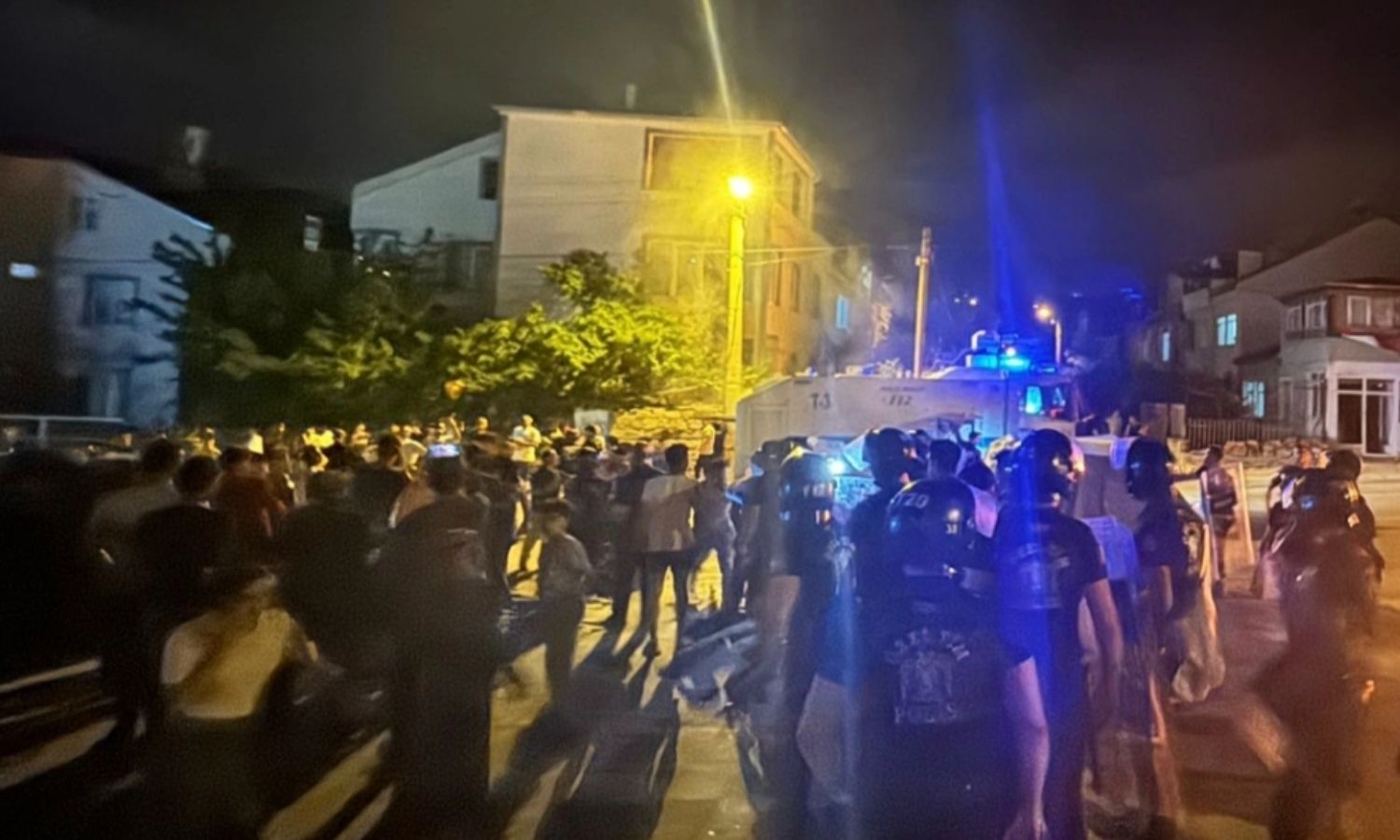



Seven Syrian civil society organizations have held European Union countries responsible for the violations that Syrian refugees in Turkey have been enduring for years, reaching a peak in early July.
A joint statement was signed by the organizations: Syria Justice and Accountability Center, Syrian Center for Media and Freedom of Expression, International Service for Human Rights, Ornamo for Human Rights, and Justice for Life organization.
On Friday, July 19, the organizations stated that the EU member states have condoned the violence against Syrians in Turkey, the latest of which occurred in the Turkish province of Kayseri.
In March 2016, the EU entered into what is known as the “EU-Turkey Agreement” to address the “migration crisis” in Europe. According to the statement, the agreement stipulated that Turkey would receive 6.4 billion euros in exchange for curbing the flow of migrants to European territories. The amount increased to 9.4 billion euros in 2023.
The organizations stated that the agreement is based on the fundamental assumption that Turkey is a “safe country for Syrian refugees,” but the general conditions for Syrians in Turkey and the increasing risks of “forced repatriation” have long proven that Turkey cannot be considered a safe country.
The statement highlighted that civil society has consistently documented Turkey’s illegal repatriation of refugees to Syria, violating the principle of non-refoulement.
Despite Turkish President Recep Tayyip Erdoğan’s promises to establish “safe zones” in the Turkish-controlled areas in Syria, many organizations have documented Turkey’s repatriation of hundreds of Syrians to these areas in the past few days, adding to the thousands repatriated over the past year alone.
These repatriations occurred despite Syrians in Turkish-controlled areas still facing arbitrary detention, conflict-related violence, inhumane and degrading treatment during detention, housing, land and property rights violations, and lack of access to justice mechanisms, all of which threaten the lives of forcibly returned refugees.
Despite repeated violations by Turkey, the EU has ignored ongoing warnings from civil society about Turkey’s blatant breaches of international law, instead betting on shifting the responsibility for refugees onto Turkey and other countries.
Although the EU-Turkey agreement is portrayed as a “temporary and exceptional measure,” ongoing developments show that this exceptional situation and the associated lack of accountability for rights violations “have become the norm.”
The Syrian organizations’ statement deemed that the EU’s efforts to keep refugees away from its borders have resulted in countless rights violations for Syrian refugees in Turkey, leading to a descent into persecution.
The statement considered that the EU’s reluctance to act according to its core principles and its aversion to acknowledging the right to seek asylum is an issue that must be addressed to avoid further violence against Syrian refugees.
The signatories urged the EU to take immediate action by implementing the recommendations, the first being the imposition of immediate sanctions on Turkish parties and political figures involved in hate speech targeting Syrian and other refugees in Turkey.
In addition to publishing a recent analysis on whether Turkey can be considered a safe third country as defined by Article “38” of the EU Asylum Procedures Directive, which should include information provided by civil society and consider the recent escalation of attacks on Syrians in Turkey, making it available to the public.
The organizations recommended that the EU terminate its agreement with Turkey once it becomes clear that it is not a safe country.
Until this happens, the statement noted that all financial contributions to Turkey should be frozen until it stops all deportations of Syrian refugees, even to what Ankara calls “safe zones.”
According to the statement, all instances of violence against Syrian refugees in Turkey should be prosecuted, and if financial contributions continue, the EU should make serious efforts to ensure meaningful integration of Syrian refugees into the funding, especially in light of the recent findings by the European Court of Auditors indicating inefficiencies in refugee facilities in Turkey.
The statement also called for an acknowledgment that Syria is not a safe country for refugees, especially as some EU member states are making strenuous efforts to recognize Syria as a safe country.
On June 30, protests in the Turkish city of Kayseri turned into attacks on Syrian interests following the spread of a rumor about a Syrian refugee allegedly assaulting a five-year-old Turkish girl.
The governor of Kayseri issued a statement explaining the incident, saying that the Syrian refugee assaulted a girl of Syrian nationality in the Danışmentgazi neighborhood, leading to his arrest by Turkish authorities in the area, and the girl being placed under protection by the relevant authorities.
The governor added that the authorities are closely monitoring the case and urged citizens to remain calm and avoid engaging in any actions not announced by official sources.
The attacks included breaking and burning Syrian refugees’ shops and destroying their properties, such as cars and motorcycles, after the false rumor about the girl’s nationality spread.
Video recordings documented groups of citizens attacking Syrian refugees’ properties, with residents in the area taking to the streets demanding the deportation of Syrian refugees to their country and the resignation of Turkish President Recep Tayyip Erdoğan, according to the recordings.
Turkish authorities arrested over 1,000 individuals involved in the attacks on Syrian shops.
if you think the article contain wrong information or you have additional details Send Correction